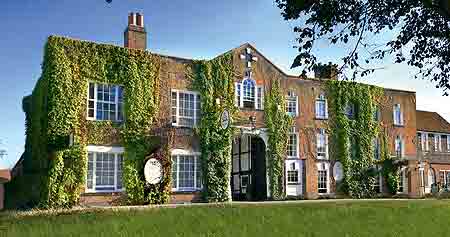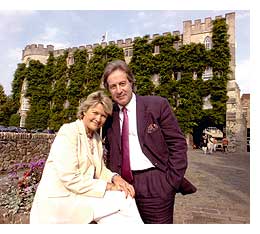What management companies offer
As the separation of owners and operators in hotels trickles down to the independent hotel market, we look at what a management company can offer. Rosalind Mullen reports.
The trend for separating bricks and brains in the hotel sector started way before recession. What's changed is that it's no longer just companies with brand equity such as Marriott and Four Seasons that are managing hotels owned by investors. Nowadays, soft-brand management companies are increasingly offering a more tailor-made hotel expertise.
These smaller companies offer independent hotels proven financial and operating systems to enhance performance in return for a percentage of turnover. They usually also take an incentive when a certain profit level has been hit. However, the necessary financial constraints has led to scepticism that such hotels can retain their individuality.
This is further complicated by the variety of hotel ownership today. An increase in hotels going into administration due to recession means banks are looking for hotel experts to run the business efficiently - as are independent hotel owners looking to retire who have been thwarted in selling their properties. Equally, private equity companies bring in management companies to maximize their property investment. As a result, contracts vary. Some owners seek rolling contracts to deal with immediate problems. Most, however, are for 10, 15 or 20 years, compared with big brands such as Four Seasons and Ritz Carlton that command up to 50 years.
The demand for management companies is obvious. Most private equity owners, or even private owners, have a different skill set to hoteliers and, therefore, need a day-to-day operator with a track record in improving performance in areas such as profit generation and customer satisfaction. They provide services such as trend analyses, business plans, weekly reports, recruitment and payroll controls and negotiations with suppliers.
Ten years ago the only way for an independent hotel to get operational processes was to bring in a brand, but there is less reliance on this route now that they can practically buy the technology off the shelf. An extreme example is Gravetye Manor, which was bought out of administration recently by private investor Jeremy Hosking. He has simply appointed an "owner representative" who can challenge the operator - in this case the general manager - and direct investment accordingly.
SOFT-BRAND MANAGEMENT
Another way is to bring in a soft-brand management company. One such company is Premier Cru, which operates 14 small country house hotels, including Lords of the Manor and the Devonshire Arms.
Managing partner Iain Shelton explains: "We try to take industry operation and sales performance into the independent market. We use our facility for, say, group purchasing, but apply it to independent hotels. We do a group deal on credit card fees but wouldn't tell individual chefs which butcher to use. Similarly, each property is marketed individually."
The nature of the properties means there's no brand recognition. What they bring is best practice and big-company clout to hotels that would otherwise not have the resources. The head office team are from corporate brand backgrounds and use corporate strategies such as yield and revenue management, monitoring statutory and regulatory compliance, guest service programmes, training, recruitment and so on - and apply them to smaller hotels.
"When we go in we need to understand what the owner wants - some want cash, some want to delegate their problems and some want to win Michelin stars. We will assess what makes good business sense," says Shelton.
In short, the company strives to maintain the quality of the hotel but it also identifies what returns the hotel should be making in this marketplace. "We've walked into hotels where there's 8% return on EBITDA from sales, which is far from the industry norm. We would aim to get that to 16% by 12 months and 20% by 24 months," says Shelton.
Like most management companies, Premier Cru relies on a sales incentive fee. So does it sacrifice the hotel's soul for the bottom line? "If it was just about the money we'd be richer than we are," says Shelton. "We are definitely hoteliers, not accountants. Sometimes our industry is run too much by accountants."
Nevertheless, this is an increasingly competitive market and to win contracts management companies are expected to show a proven track record. Equally, in order to deliver results, the management company needs to be able to work with the owner. Some operators, therefore, will often spend three to six months looking at a hotel before taking it on.
LAST CALL
So who calls the shots? "At the end of the day it's not our property so the last call is down to them. We can only advise. The key to why we set up this business as a soft brand is because they can turn round and say ‘this is my hotel, not yours'," says Shelton.
Ian Graham, principal at the Hotel Solutions Partnership, believes that for the best results both sides should work together. "In the 70s and 80s the hotel operator came to the table in the belief that they ruled the roost and could impose on the owner, but the barometer has changed. Both parties need to leverage their strengths," he says.
Similarly, Stuart Harrison, principal at the Profitable Hotel Company, points out that far from jeopardising customer experience, a good management company brings better cost-controls and systems. He adds: "A profitable operation is based on a good relationship and the operator will have more influence if they are delivering more. The principal of a good management company is that it knows how to build a relationship with an equity owner."
Arguably recession has been good for management companies. At the 23-strong Bespoke Hotels, managing director Robin Sheppard reckons the company has never been busier, picking up work on behalf of banks that are buying businesses out of administration. In his view, independent hotels nowadays will struggle without additional support - even if that is just from a marketing group such as Relais et Chateaux.
Sheppard is also sanguine about the collapse of Callbridge Hotels, which owned two of its contracted hotels. And he points out that the drop in property prices will present the company with a good opportunity to vary its portfolio and take on some freeholds.
"We are looking to make an acquisition in the next 12 months to vary our portfolio. We've already got one lease and we will look at one or two more," says Sheppard.
At Premier Cru, however, Shelton is less keen to take on a freehold. "Some owners wouldn't want the conflict of interest. So far we've stayed away from it - but that might change for the right deal."
WHERE IT ALL BEGAN
Smaller management companies have evolved from the pre-recession trend of separating out the bricks from the brains - or the ownership of the property from the operating company - through sale-and-leaseback or sale-and-manageback deals. This allowed publicly quoted companies such as the InterContinental Hotels Group to return windfall profits to shareholders while maintaining both franchise fees and a management contract for up to 20 years.
According to Stuart Harrison, principal of the http://www.hillbrookehotels.co.uk" target="_blank" rel="noreferrer">Profitable Hotel Company](http://www.profitablehotelcompany.co.uk), it has been more prevalent among hotel companies in North America and the UK than, say, in Germany or Japan, where there is a culture of growing stakeholder value over the longer term and at a more moderate rate.
He goes on to explain that the evolution of this new structure in the UK has allowed asset and management companies to proliferate. "An owner-operator deals directly with a franchisor. Under the new structures, however, the ‘propco' employs an asset manager to be the guardian and gatekeeper of the assets on the owner's behalf," he explains
"With the smaller and domestic non-branded properties we have seen the growth of management companies. These, such as Bespoke and Premier Cru, will take over as complete soup-to-nuts operator in return for a fee and a percentage of the profits. An independent property will invariably benefit from this arrangement as it can provide a more corporate presence and soft branding without relinquishing its independence and ownership."
PROS AND CONS OF MANAGEMENT CONTRACTS
ADVANTAGES FOR THE THE OWNER
â- A management company can turn a business round if the owner as operator hasn't made it work. In the current economy it can also step in if a hotelier wants to retire but can't find a buyer, or to operate the hotel on behalf of a bank if the business is in administration
â- The company will offer a small hotel corporate expertise such as financial systems, trend analyses, business plans, weekly reports, recruitment, payroll, purchasing and so on
â- An owner can stipulate approval clauses that set out the extent to which their consent is required for decisions affecting the operation of the hotel. These typically include budget, employment of key management positions, outsourcing, capital expenditure, and leases and concessions
DISADVANTAGES FOR THE THE OWNER
â- Tight contracts are important as the owner may wish to be more hands-on than the operator desires, or vice-versa, and this can cause rifts
â- It's important to get the right incentives for the operator to run successfully - that is the balance between percentage of turnover and percentage of EBITDA as fees
â- A management company may be too formulaic for a small independent hotel, which, depending on location, might be better investing in a good management team
â- The owner is obliged to provide funds to maintain the hotel according to the relevant brand standards
WHEN MIGHT YOU NEED A MANAGEMENT COMPANY?
"I wouldn't dream of having someone interfering with the way I run my hotel," says Chapman. "My view is that you need to find yourself a good general manager and heads of department rather than pay fees to a management company. The key is in the team you build around you and the care you take in selecting people."
This view is supported by Ian Graham, principal at the Hotel Solutions Partnership, who believes it's not always in a hotel's interests to go down the management contract route. "The issue for the independent hotel is how important it is to have a brand. If you are in a local town you might really only need to put in a good general manager and marketing person. But if you are in London's Park Lane selling corporate and leisure business, you need an organisation that can do it for you. You need to understand the options you've got."
Arguably, in Chapman's case, he has the luxury of being able to pass the reigns over to his sons. Dominic is a Michelin-starred chef at Royal Oak, Paley Street, and Nick is a media entrepreneur. But for those independent hoteliers that do need the services of a management company, he says it is imperative to find one with flair and passion.
To that end, Chapman has just set up his own management company, [Castle Management](http://www.castlemanagement.co.uk), with industry guru David Coubrough as chairman. Based locally, he launched it partly to retain and develop key staff at the hotel, particularly general manager Kevin McCarthy and finance director Jon Peilow, without having to open another property.
"We are rolling out our expertise in all departments," says Chapman. "I am alive to the need out there to provide this kind of service."
CASE STUDY BESPOKE HOTELS
THE OPERATOR There are 23 properties in the [Bespoke Hotels](http://www.bespokehotels.com) portfolio, most on a 10 to 20-year management contract. As with most management contracts, the company takes a percentage of turnover and a percentage of net profit, although usually it has to achieve a specified level of profit before taking payment.
The company, which has a reputation for providing value for money, provides independent hotels with a voice in negotiations with suppliers and organisations. So while Bespoke brings clout, financial systems and national agreements with nominated suppliers, it's also flexible. For instance, if the hotel can get a better deal locally it is accepted.
In the current climate, Bespoke has taken on contracts where owners have wanted to retire and sell but the timing has not been right. In these cases, Bespoke works alongside the existing management. However, where Bespoke takes over from another management company or takes on a lease agreement, it adopts a more dominant approach and imposes systems quickly to avoid confusion.
Many hotels that it takes on are not performing and the challenge for Bespoke is to use its systems to turn that around. For instance, the hotel might be showing a good turnover but low profit, so operating costs need to be tightened. More often, turnover is low. In these cases, Bespoke decides what services or extras are essential and what are discretionary. "It's still a recession so we have to adopt a hard line sometimes," says Sheppard.
THE OWNER One of the properties in Bespoke's portfolio is Clumber Park, Sherwood Forest, which is owned by Moorgarth Leisure. As finance director Peter Whiteley explains, the property company initially had a stake in the hotel as an investment, but ended up taking complete ownership last year.
It has spent £500,000 on a refurbishment and £2.25m on a 27-bedroom extension and spa, so wanted to maximize the hotel's performance before realising its investment. In addition, the economy wasn't well-placed for a sale. With no experience in running hotels, the obvious option was to bring in a management company - Bespoke - in July 2009.
Although the company opted for a rolling 12-month contract with Bespoke, Whiteley is pleased with the business relationship and expects it to continue. "From the moment they took over they started to link our hotel with the rest of the chain, promoting special offers and online offers. They brought in a higher level of expertise than an independent hotel can have."
Other resources that the 73-bedroom hotel benefited from include HR, sales and marketing, operations and purchasing and a strong level of management expertise, all of which has helped improve sales by 8% to 10% year-on-year.
More importantly, Whiteley says the hotel is now more profitable, with better purchasing contracts and tighter management controls.
"This has been a difficult time for hotels, but under Bespoke we have increased sales and occupancy and there is a greater clarity in management reporting," he explains.
So what about downsides? At the moment, Whiteley reckons there aren't any. Plans to sell the hotel have been shelved and he adds that Moorgarth is even looking at other opportunities to work with Bespoke.
CASE STUDY HILLBROOKE HOTELS
THE OPERATOR
[Hillbrooke Hotels operates four "quirky chic" hotels on behalf of independent owners - usually of estates, such as the Master Builder's House hotel on the Beaulieu Estate and Bath Arms at Longleat.
Something worked because within 15 months the hotel went from suffering losses of £150,000 a year to making a small profit, and Brooke says he is now working to maximise that profitability.
So, how did he do it? As a management company, Brooke says Hillbrooke can provide systems to boost occupancy and control costs that an owner or an independent hotel might not have. But like its competitors, Hillbrooke is sensitive to the needs of individual hotels. For instance, there is a central buying department for such items as loo rolls and binbags, but managers and head chefs have autonomy to pursue their own style within the structure set out by Hillbrooke.
At the end of the day, though, the operations director and marketing manager visit each hotel on a weekly basis to ensure systems are in place.
As for becoming an owner-operator, although Brooke admits it would be good to strengthen the portfolio with a freehold hotel, he says the nature of the properties they pursue on estate land means it is unlikely a freehold - or management contract - will come up. He adds: "In the present economy it would be a big risk. For every freehold, we could do two or three leasehold deals."
To that end, he says there are lots of opportunities to take on leases at the moment. "It's a risky economy, but we have one hotel lined up to open at Christmas and another for next Easter."
THE OWNER Lisa Eaton, a director at Tresillian Leisure which owns the 14-bedroom New Inn at Coln St Aldwyns, signed Hillbrooke up for a 12-month rolling management in September 2008.
"They are good at management but the hotels are nice, too. They take pride in what they do - the food's good and the team are energetic and passionate," she says. "Christoph understands the numbers and has delivered on what he said they would with the minimum of fuss."
She cites Hillbrooke's marketing expertise as being key to driving up occupancy. It has also used its systems to keep costs under control and increase the margins on F&B, which has pushed up turnover.
She's impressed by the fact the hotel has retained its independent feel while gaining leverage from being in a group. Hillbrooke, for instance, used its HR expertise to recruit the right general manager, who can now rely on support from other managers in the group.
"There are no disadvantages," says Eaton. "I only need to spend half-a-day a month checking everything is running smoothly. I guess if you have the wrong management company, though, there could be problems."















